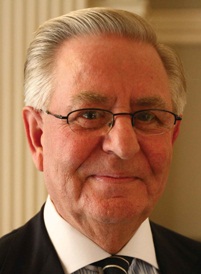By Robert Skidelsky
LONDON: Is there more to be said about Egypt? Hosni Mubarak has been sacrificed to save the military regime. A “strongman” who cannot keep order in the streets is of no use to anyone. Whether “democracy” will ensue is much more dubious. Judging on the basis of Pakistan, and much of the rest of the Muslim world, periods of (corrupt) civilian rule will alternate with “cleansing” military coups.
I doubt that most Egyptians put what we call democracy at the top of their political agenda. Journalists who claim otherwise are not a representative sample, even in Western countries. They are a restless breed, flitting round the world’s trouble spots, pen and camera poised. Freedom of expression is in their bones; mass protests their visual lifeblood. They try to report the world as it is, but theirs is not the world of most people — their business depends on the disruption of “ordinary” business, so they systematically underestimate people’s desire for law and order (or at least order).
Most people, it seems, will tolerate a modest amount of political repression, including secret police, torture, and corruption, if it delivers security and a modicum of prosperity and fairness. Otherwise, there is no explanation for the longevity of dictatorships such as Mubarak’s 30-year rule. Likewise, in the referendum that ended his 16-year rule in Chile in 1990, General Augusto Pinochet, with thousands of tortured and vanished victims in his grisly cupboard, ran on a law-and-order platform and received 44 percent of the vote.
Most Western leaders think naturally in terms of a “transition to democracy.” This is what they want to happen in Egypt, hoping that democracy will not jeopardize Egypt’s peace treaty with Israel. But Western democracies’ combination of freedom and order — the West’s most precious gift to the world — is the product of a long history that cannot be replicated in short order.
Non-Western political systems are typically archaic: good rulers can sleep soundly at night, while bad rulers face continual danger of overthrow from the army or the streets. Most non-Western peoples rely upon the ruler’s personal virtues, not institutional limits on his power, to make their lives tolerable. We interpret as striving for democracy what is really the traditional way of getting rid of bad rulers.
Yet all of this leaves out the possibility of change, particularly change influenced by the United States’ unsettling role in the world. The idea that the US is a status quo power is a delusion of international-relations experts. In the short run, of course, the US behaves like an ordinary power. It has interests to protect, and this often requires supporting unsavory regimes. But America’s long-term project is to remake the world in its image.
Where America has room for maneuver, it always presses forward in this direction. And, despite the rise of China and the move to a more “plural” international system, the US still has the power to change “facts on the ground” in large parts of the world, particularly the Middle East.
Experts have always underestimated the expansionary character of American foreign policy, because they think of expansion in old-world terms: conquest, imperialism, and colonialism. The US does not seek to create an empire in the old sense: America pursues an imperialism of the values that it holds dear.
If all countries have the same values, traditional imperialism becomes obsolete. Though it clearly lacks the power to impose its values by force, the US certainly has the power to unsettle established conditions, both through the attraction of its “soft power” (the American way of life) and by the exemplary use of force.
I was one of those who opposed the US-led invasion of Iraq in 2003. Now I wonder whether I was right. Parts of the invasion and occupation were certainly badly mishandled by the US, leading to a much greater loss of life than was necessary. But, taking the long view, can anyone doubt that the invasion had the effect of shaking up the pieces, not just in Iraq, but across the Islamic chessboard?
That is why I am not at all sure that the street uprisings in Egypt, following those in Tunisia, and now spreading to other Muslim-majority countries, can be interpreted simply as traditional forms of protest against bad rulers. Throughout the Muslim world, there is a sense of enlarged possibilities, especially among the young: more than half of Egypt’s 80 million people are under 25. Surely, this sentiment can be traced back to the US invasion and forcible overthrow of Saddam Hussein.
In his great verse drama Faust, Goethe has God send humanity the Devil (Mephistopheles) in order to stir things up. His intention is quite clear: “Man’s active nature, flagging, seeks too soon the level; Unqualified repose he learns to crave, Whence, willingly, the comrade him I gave, Who works, excites, and must create, as Devil.”
Mephistopheles is rather a joker. So is America, always stirring sleepy societies out of their torpor — a role begun when Commodore Matthew Perry “opened up” Japan in 1854. If we want to hold fast to any vision of progress, this is an indispensable role, and only America can play it today. With China, like seeks to talk to like. With America, like deliberately engages with unlike, and tries to infuse it with some of its vigor.
True, America’s intervention in the Middle East also strengthened extremist Islam, breeding on the resentment that the US presence arouses. But, taking the long view, the future surely does not lie with organizations like the Muslim Brotherhood. The religious demon is a far less appealing devil than Uncle Sam. Sooner or later, the Brothers will suffer the fate of all bad devils.
Robert Skidelsky, a member of the British House of Lords, is Professor Emeritus of Political Economy at Warwick University. This commentary is published by DAILY NEWS EGYPT in collaboration with Project Syndicate (www.project-syndicate.org).



